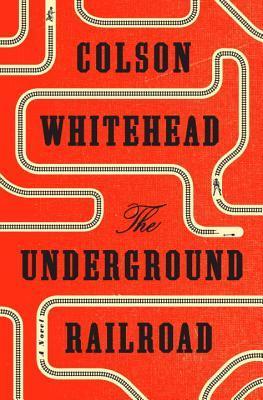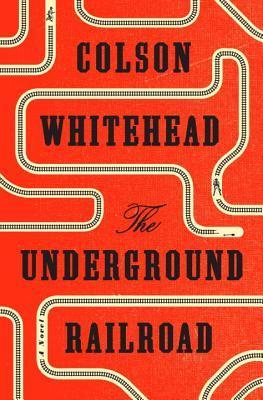
“Cora didn’t know what optimistic meant. She asked the other girls that night if they were familiar with the word. None of them had heard it before. She decided that it meant trying.” – Colson Whitehead, The Underground Railroad
The Underground Railroad is the last addition to my 2016 top 12 ensemble. Written by Colson Whitehead, the book narrates the travails of a young black girl Cora, in the bursting enclave of a cotton plantation in the early 19th century. The story kicks off with the rote of duty, the daily sun up to sun down laboring on the Randall plantation, the drudgery of slave life. The one respite that bears the slightest semblance to true ownership was the small patch of land left by Cora’s dead Grandma and that too was under threat from the hawkish eyes of the other slaves. Cora’s first hint of bravery reared in her reclamation of her grandmother’s parcel from a feared bully by the very force of her character. Later she would step in to defend another slave in an uncommon show of courage or maybe just crass audacity. This characterization helped the reader to forge an image of this girl, alone in the world and caught in an unfortunate situation. Mothered by a slave, Cora didn’t have to wonder what her mother’s life was. Her uncertainty stemmed from the unknown fate to which her mother had escaped running away from the farm without any information about her where-about.
Impelled by another free-spirited lad Caesar, Cora made a run for it with the help of a White abolitionist whose life work was furtively dedicated to helping slave’s escape the terrors of their master through an underground railroad.
The nail-biting layered plots in this book is likely going to make you cringe and squirm with fear. It’s a cold cruel world and if anything Cora knows this. She’d lost her family at a very young age. Her companion with which she fled the plantation had disappeared unceremoniously; her friend who’d sneaked after them had met with her death in the cold hands of another brand of savages, just as cruel as the masters from which she had fled. As we experience every mile away from the brutal homestead of Cora’s slavehood, we are equally yoked with the determination with which her bounty hunter, viciously motivated is set upon his task. To feel that this innocent girl who has come so far, endured so long might have her small victory upended at the slimmest encounter with someone who would give her away without any compunction is a constant cause for engagement and trepidation.
With many close shaves as Cora trudged from one state to the other, each with its own form of subversive legislation. From the Fugitive state law to Forced sterilization in South Carolina, a devious bounty hunter close at her heels, several oppressive elements lurking in every street corner, Whitehead sucks the reader in for a ride that will have him all spent with adrenaline-jutting exhaustion by the time the book is done.
“Slavery is a sin when whites were put to the yoke, but not the African. All men are created equal, unless we decide you are not a man.”
“A plantation was a plantation; one might think one’s misfortunes distinct, but the true horror lay in their universality.”
“Poetry and prayer put ideas in people’s heads that got them killed, distracting them from the ruthless mechanism of the world.”“see chains on another person and be glad they are not your own–such was the good fortune permitted colored people, defined by how much worse it could be at any moment.”
“The music stopped. The circle broke. Sometimes a slave will be lost in a brief eddy of liberation. In the sway of a sudden reverie among the furrows or while untangling the mysteries of an early morning dream. In the middle of a song on a warm Sunday night. Then it comes, always – the overseer’s cry, the call to work, the shadow of the master, the reminder that she is only a human being for a tiny moment across the eternity of her servitude.”
“And America, too, is a delusion, the grandest one of all. The white race believes–believes with all its heart–that it is their right to take the land. To kill Indians. Make war. Enslave their brothers. This nation shouldn’t exist, if there is any justice in the world, for its foundations are murder, theft, and cruelty. Yet here we are.”
“Truth was a changing display in a shop window, manipulated by hands when you weren’t looking, alluring and ever out of reach.”
What makes this book tick for me is the texture of the narrative. The very jerky moments at the beginning of the novel are skillfully laid with a soft cushioning of pathos that would make it feel less like you weren’t wading through some slow, awkward build of the story. Even though it started dully, the slow build is like the tedium of the plantation itself, like a automaton programmed for the backbreaking chores of the day. The good news is that it gets easier. Once the escape was set into motion your adrenaline starts to misbehave, your jaws clenched a bit too tightly.
Proudly endorsed by Obama and Oprah Winfrey, The Underground Railroad ascended quickly to the top of my list, and even when it wasn’t quick in captivating me, it held the promise of a great read right from the beginning form its jerky motions.
Colson Whitehead was a finalist for the Pulitzer Prize once, the PEN/Hemingway award and has won many other awards.
